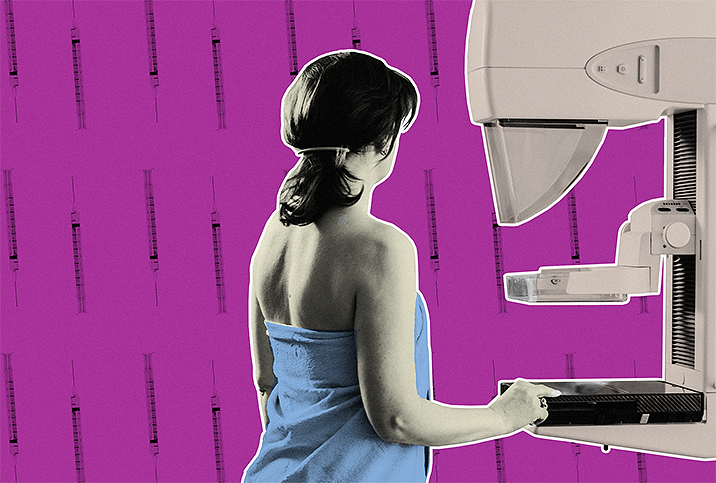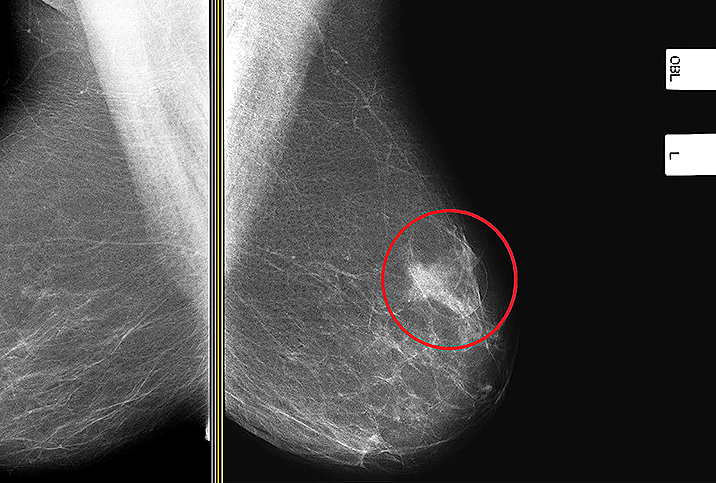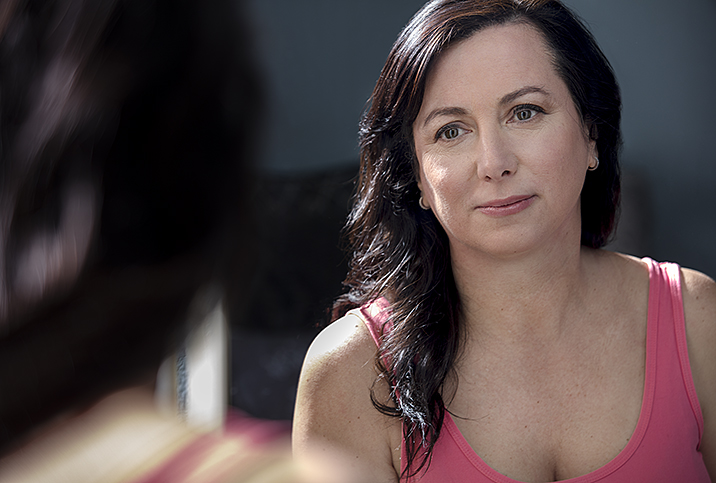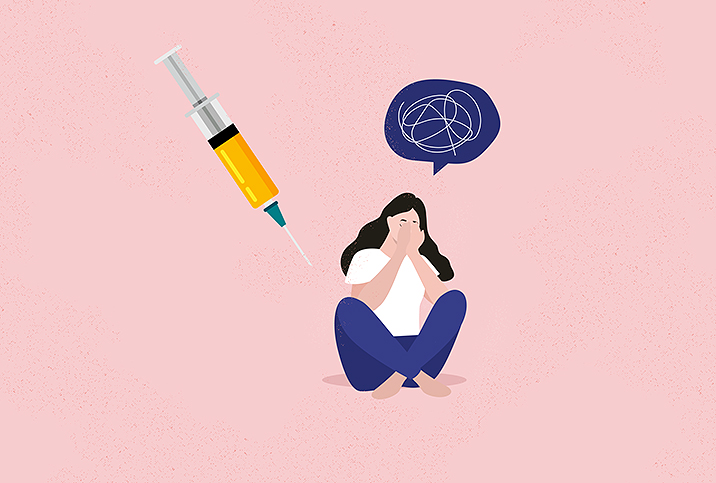Yes, the COVID Vaccine Can Cause a False Positive Mammogram

Women who plan to be immunized against COVID-19 are advised to wait until after they have undergone breast cancer testing or face the risk of a false positive screening mammogram, according to James Stoeckle, M.D., a clinical fellow in hematology and oncology at New York University (NYU).
"There is no prospective data that tells us what the right thing to do in this situation is, but I do think that's a reasonable approach," said Stoeckle.
Some 16 percent of women had enlarged lymph nodes after vaccination, according to Hannah Milch, M.D., a radiologist and assistant clinical professor at the David Geffen School of Medicine at the University of California (UCLA).
"We know from clinical trials that there are some rates of women from the Pfizer and Moderna vaccines who did have swelling in the armpit or tenderness of some sort in what's called lymphadenopathy, which is a lymph node reaction in the armpits and the axillary region," she said.
Stoeckle isn't surprised by the link between a positive screening mammogram and the COVID-19 vaccine. He worked on a different study evaluating how cancer patients are impacted after contracting COVID-19.
"We have seen commonly and particularly with breast cancer, as well as lymphoma, especially on the side of the arm that they received the vaccine, that there is a normal swelling of the lymph nodes," Stoeckle said. "It's the body's normal immune response that can lead to the false positive."
The response that some women have to being vaccinated is well documented at UCLA. Some 12 percent out of 200 screening mammograms a day are positive or inconclusive. But enlarged lymph nodes are not exclusive to this vaccine, according to Stoeckle.
"That same reaction can happen from different types of viral infections," he said. Milch noticed the false positive connection among women who received the shot in December 2020. The Centers for Disease Control and Prevention (CDC) reported that, as of July 21, a total of 161,631,676, or 48.7 percent, of the U.S. population has been fully vaccinated for COVID-19.
"Immune cells live in lymph nodes," Milch said. "They proliferate to create the antibodies, which creates the protection against COVID. This is true with any vaccine. The reason lymph nodes become enlarged is because they are part of your immune system. So, when a vaccine is administered, it activates your immune system and your immune cells."
'Traditionally, we would expect your lymph nodes to normalize within a few months, but there is always room for error.'
Milch has evaluated reactions to both the Moderna and Pfizer vaccines and, at least anecdotally, she isn't seeing that one vaccine causes a stronger reaction in lymph nodes than the other. "It's across the board with both brands of vaccines."
But the injection does appear to cause a stronger response than other immunizations.
"There seems to be a stronger response in terms of the way the lymph nodes are responding but, for example, the shingles vaccine really could have a strong response and there are others," Milch stated. "The reason the COVID vaccine became such a phenomenon is because so many people were getting the vaccine all at once. But it's more than some run-of-the-mill vaccines in terms of the level of lymph node enlargement that we see."
Women are more likely to be vaccinated than men. For example, in the first month that the vaccine was administered last year, some 63 percent of women were immunized compared to 37 percent of men, according to media reports.
"Traditionally, we would expect your lymph nodes to normalize within a few months, but there is always room for error," Milch said in an interview. "It could be plus or minus a month. We don't know for sure, but we are looking at that at UCLA to get a sense of how long they stay swollen or enlarged after the COVID vaccine. You would expect within some number of months that they would go back to normal."
Upon receiving a positive screening mammogram, women who are screened at UCLA are called in for further testing.
"That's the risk to the patient—having to deal with that anxiety and having to maybe have multiple ultrasounds to confirm that it's nothing to worry about," Milch said. "Occasionally, you'll get recommended for a biopsy, which is a little more invasive because we have to stick a needle in there and take a tiny piece of tissue to make sure that it's just related to the vaccine and not related to cancer."
More recently, Milch has taken to calling an exam negative even if a woman's lymph nodes are enlarged or swollen.
"If we know your vaccine history and you get a screening mammogram, we now are much more comfortable trying to avoid many of those false positives because we know what it looks like," she said.
UCLA's current policy, according to Milch, is to schedule a mammogram before vaccination or scheduling a mammogram four to six weeks after the second dose.
"My personal and professional opinion is that this suggestion may evolve because we don't know exactly how long it takes for the vaccine to wear off," she added.

















